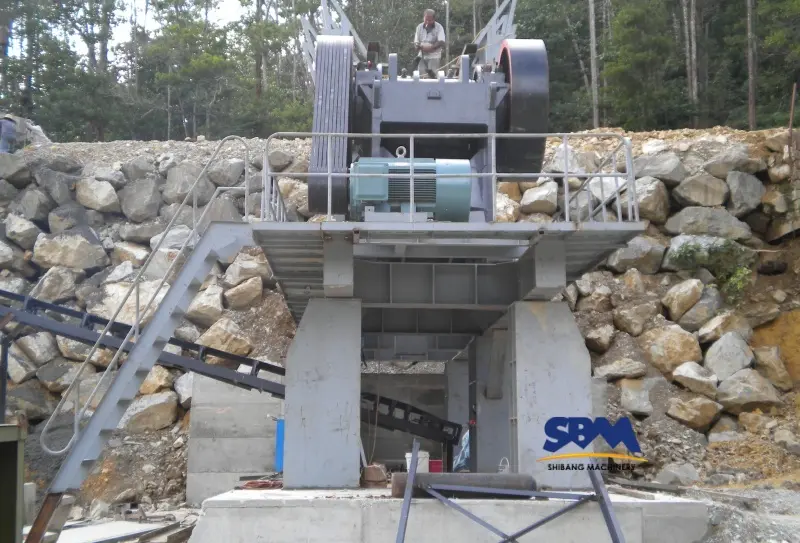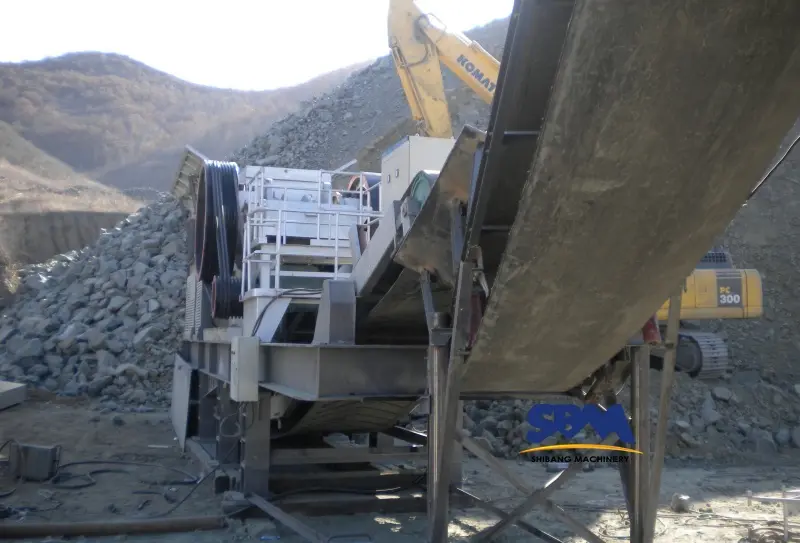ईमेल: [email protected]
Beyond the Crush: Environmental Impacts and Solutions for Jaw Crushers
From Australian iron ore mines to Norwegian granite quarries, the environmental impacts of jaw crushers – noise, धूळ, energy requirements and waste – has sparked global debate. As the mining industry demands sustainability, understanding environmental strategies for jaw crushers has become essential. This article explores possible environmental strategies to minimize environmental impacts while maintaining operational efficiency.
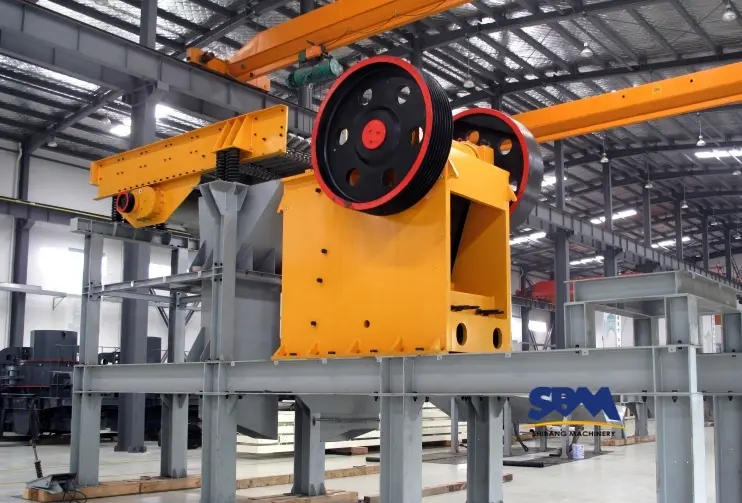
1. Noise Pollution Control in Crushing Operations
Jaw crushers produce a lot of noise during operation, often in excess of 85 decibels – a level that is harmful to both workers and nearby communities. Modern jaw crusher design integrates noise-dampening technologies such as:
- Vibration-isolated bases to reduce structural noise transmission.
- Acoustic enclosures around motors and crushing chambers.
- Strategic placement of crushers away from residential zones, as seen in Canadian quarry operations using SBM Crushers’ low-noise models.
केस स्टडी: A German limestone quarry reduced noise pollution by 30% after retrofitting their PE jaw crusher with soundproof panels and optimizing feed rates.
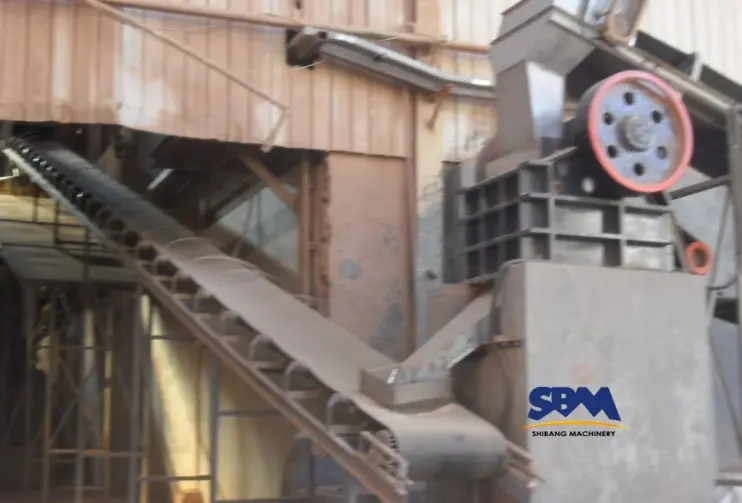
2. Dust Management: Protecting Air Quality
Dust emissions from jaw crushers pose respiratory risks and environmental contamination. Effective solutions include:
- Water Spray Systems: Installed at feed and discharge points to suppress airborne particles.
- Closed-Circuit Design: Modern crushers like the PF1210 Impact Crusher use enclosed chambers to contain dust during secondary crushing.
- Baghouse Filters: Deployed in Australian iron ore mines to capture ultrafine particles post-crushing.
Pro Tip: Pair jaw crushers with automated Crushers in Aggregate Production lines to minimize manual handling and dust exposure.
3. Energy Efficiency and Carbon Footprint Reduction
Jaw crushers account for ~15% of a mining site’s energy consumption. Sustainable practices include:
- Variable Frequency Drives (VFDs): Optimize motor speed based on load, reducing energy waste by up to 25% in U.S.-based SBM Crushers installations.
- Hybrid Power Systems: Solar-diesel hybrid units powering PE jaw crushers in remote African mines, cutting CO₂ emissions by 40%.
- Material Pre-Screening: Removing fines before crushing lowers energy demand, as demonstrated in Swedish granite processing plants.
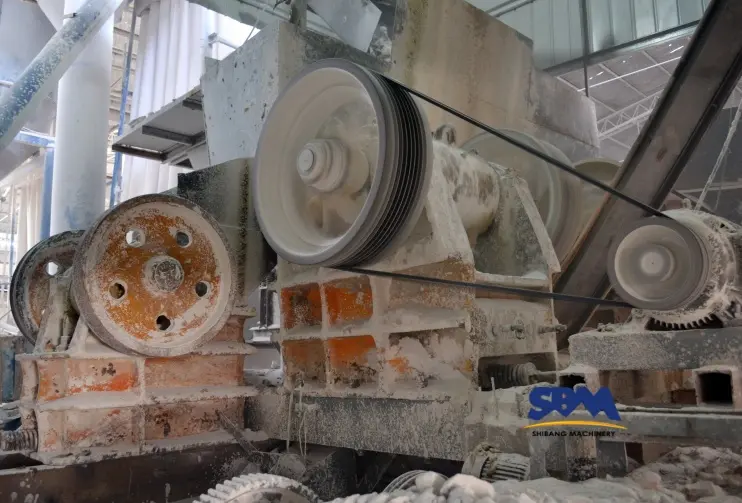
4. Water Conservation in Crushing Processes
While water is essential for dust control, its overuse strains local resources. Innovative approaches include:
- Closed-Loop Water Recycling: Canadian quarries reuse 90% of crusher water through sedimentation tanks.
- Dry Fog Systems: A waterless alternative using air compression, adopted in Chile’s copper mines for Jaw Crusher Feeding Tips compliance.
5. Waste Management and Material Reuse
Sustainable jaw crusher operations prioritize circular economy principles:
- Recycling Spent Liners: Swedish firms reprocess worn-out jaw plates into road construction materials.
- Aggregate Byproduct Utilization: Crushed concrete from demolition sites is reused in U.K. infrastructure projects via PF1210 Impact Crushers.

Integrating Sustainability into Crusher Design
Modern jaw crusher design emphasizes eco-efficiency:
- PE Jaw Crusher Series: Features lightweight frames and regenerative braking systems to reduce material and energy use.
- Smart Sensors: Monitor real-time emissions and wear, enabling predictive maintenance for SBM crushers models.
Building a Greener Crushing Industry
Addressing environmental issues in jaw crusher operations is no longer optional – it is a competitive advantage. By integrating noise reduction, dust suppression, energy conservation and waste recycling, companies can achieve regulatory compliance and gain community trust. By implementing these strategies, production efficiency can be improved while ensuring operational safety.
मुख्यालय कार्यालय
Whatsapp:+8615225176731
ईमेल: [email protected]
पत्ता: नाही. 1688, गावके पूर्व रस्ता, पुडोंग नवीन जिल्हा, शांघाय, चीन.
संकेतस्थळ: https://www.mill-sbm.com/
लेखातील सामग्री
अलीकडील पोस्ट
- Single Toggle VS Double Toggle Jaw Crushers: A Quick ComparisonIn basic industrial fields such as aggregate production and mineral mining, the structural differences between single toggle vs double toggle jaw crushers directly determine the equipment selection strategy. The comparative…
- What is the Life of a Jaw Crusher? Key Factors & Maintenance TipsThe service life of a jaw crusher is usually 5-15 वर्षे, and its life is subject to the combined effects of the intensity of equipment use, maintenance system and working…
- Beyond the Crush: Environmental Impacts and Solutions for Jaw CrushersFrom Australian iron ore mines to Norwegian granite quarries, the environmental impacts of jaw crushers – noise, धूळ, energy requirements and waste – has sparked global debate. As the mining…

